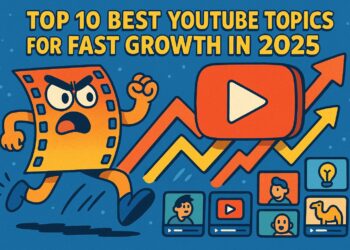Dopamine Detox 2025 is one of the most talked-about wellness trends this year, helping people regain focus, reduce screen fatigue, and take back control of their mental health. In 2025, the concept of the dopamine detox has re-emerged as a popular strategy among individuals seeking to enhance focus, reduce stress, and break free from digital dependencies. But what exactly is a dopamine detox, and does it live up to the hype?
🔍 What Is a Dopamine Detox?
A dopamine detox involves intentionally abstaining from activities that provide instant gratification—such as social media use, video gaming, or binge-watching TV shows—for a set period. The goal is to “reset” the brain’s reward system, thereby reducing impulsive behaviors and enhancing the ability to engage in more meaningful, long-term activities. The term was popularized by psychologist Dr. Cameron Sepah in 2019 as a method to manage addictive behaviors. However, some experts argue that the concept oversimplifies the complex role of dopamine in the brain.
📈 Why the Resurgence in 2025?
Several factors contribute to the renewed interest in dopamine detoxes:
- Increased Screen Time: With the proliferation of remote work and digital entertainment, individuals are spending more time on screens, leading to concerns about digital addiction and its impact on mental health.
- Desire for Mindfulness: There’s a growing movement towards mindfulness and intentional living, prompting people to seek methods to disconnect from constant digital stimulation.
- Economic Pressures: The current economic climate has heightened stress levels, leading individuals to explore various wellness trends to manage anxiety and improve productivity.
⚖️ The Science Behind Dopamine Detoxes
Dopamine is a neurotransmitter that plays a key role in how we experience pleasure and reward. The idea behind a dopamine detox is that by abstaining from pleasurable activities, one can “reset” the brain’s reward system. However, this concept has been met with skepticism from the scientific community. Experts point out that it’s impossible to completely avoid dopamine release, as it’s involved in many essential functions beyond pleasure, including movement and motivation.
🧘 Potential Benefits and Criticisms
Proponents of dopamine detoxes claim several benefits:
- Improved Focus: Reducing reliance on instant gratification can enhance concentration on long-term goals.
- Increased Productivity: By minimizing distractions, individuals may find they accomplish more.
- Enhanced Self-Control: Practicing abstention can strengthen willpower and discipline.
However, critics argue that the practice oversimplifies the role of dopamine and may not lead to the purported benefits. Some suggest that instead of complete abstention, a more balanced approach to managing behaviors and understanding underlying triggers is more effective.
🛠️ Practical Steps for a Balanced Approach
Rather than attempting a full dopamine detox, consider these strategies to manage digital consumption and enhance well-being:
- Set Specific Time Limits: Allocate certain periods during the day for checking emails or social media.
- Create Tech-Free Zones: Designate areas in your home, such as the dining room or bedroom, as technology-free spaces.
- Engage in Offline Activities: Cultivate hobbies that don’t involve screens, like reading, cooking, or outdoor sports.
- Practice Mindfulness: Incorporate mindfulness techniques, such as meditation or deep-breathing exercises, to reduce stress and increase present-moment awareness.
🔗 Further Reading and Resources
For those interested in exploring this topic further, consider the following resources:
- Do We Need to Detox From Dopamine? – Psychology Today
- Dopamine Detoxes Don’t Work: Here’s What To Do Instead – Cleveland Clinic
- Debunking the Dopamine Detox Trend – The Scientist
As with any wellness trend, it’s essential to approach dopamine detoxes with a critical mind and consider personal needs and circumstances. Consulting with healthcare professionals can provide personalized guidance tailored to individual situations.





![Toronto Pearson Airport Shooting: 1 Killed During Security Incident [April 2025] 6 Toronto Pearson Airport Shooting: 1 Killed During Security Incident [April 2025]](https://wbtrends.com/wp-content/uploads/2025/04/7B64118D-687D-4453-AD1A-88FFA777F768-350x250.png)



